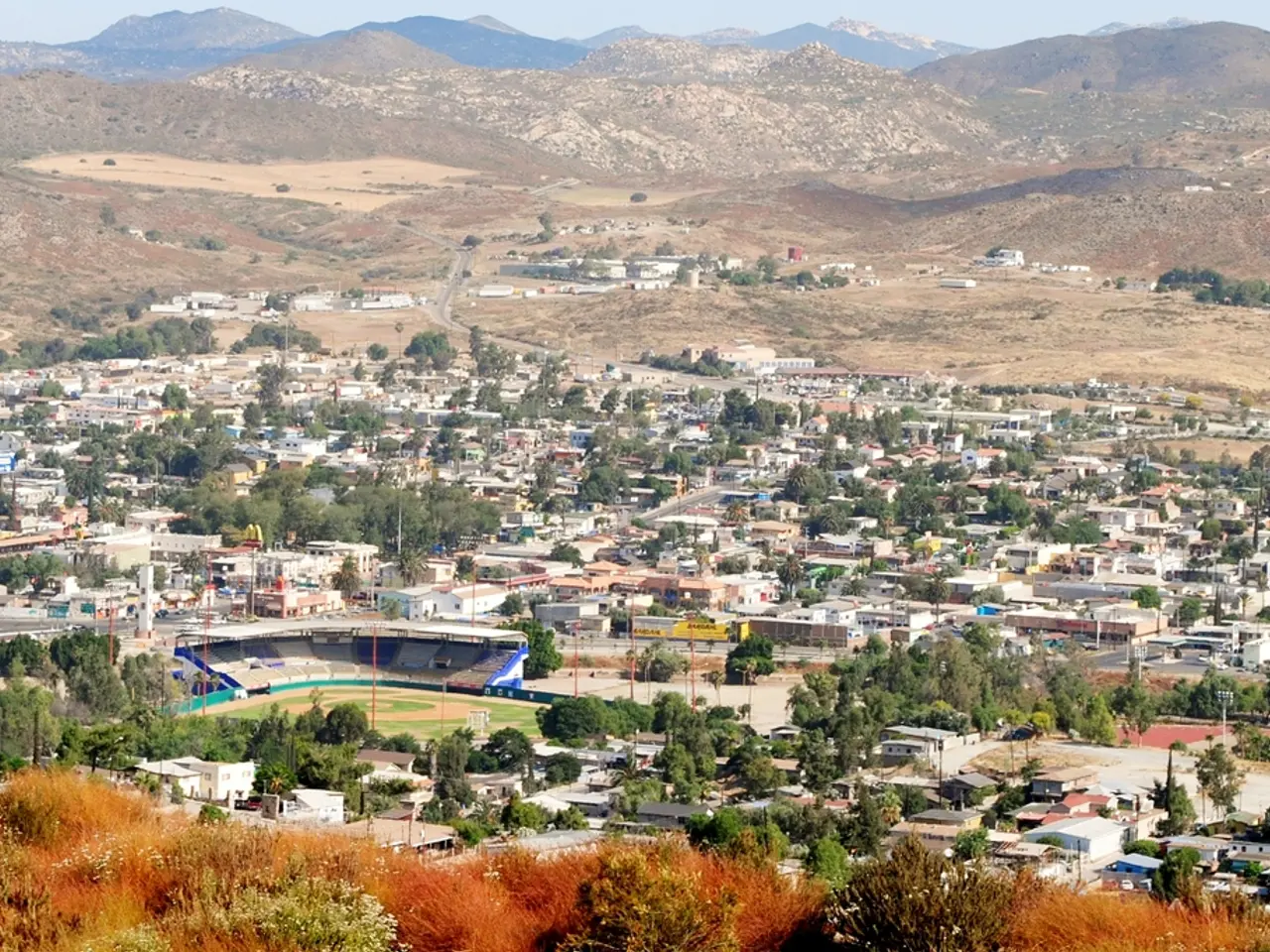Housing sectors worldwide exhibit signs of recovery
In a world where housing costs continue to soar, the roots of the current housing "supercycle" can be traced back to the second half of the 20th century, as land use regulations began to restrict new construction. This supply-demand imbalance, combined with other interrelated factors, has led to a global housing market characterized by rising prices and rents, with affordability deteriorating particularly for lower and middle-income groups.
Across the OECD group of 38 rich countries, half of survey respondents are "dissatisfied with the availability of affordable housing," according to Valentina Romei and Sam Fleming in the Financial Times. This dissatisfaction is evident in cities like Vancouver, Toronto, and Amsterdam, where real terms falls of 10% from the peak have been observed. Similarly, London prices have lost 25% of their value in real terms since the 2016 peak.
The 2024 UBS Global Real Estate Bubble index reports that prices in major cities have eased back over the past two years in real terms due to higher interest rates. However, the decline in real house prices is lower than many predicted due to these same interest rates. In fact, interest rates are expected to fall in the near future.
One of the key drivers of this supercycle is the strong investor and capital flows into residential real estate. Institutions, including real estate investment trusts (REITs), have poured capital into housing, attracted by steady rent growth amid tight markets. This capital influx, coupled with limited new supply, has perpetuated high housing prices.
Another factor is the demographic and social drivers, such as population growth, urbanization, and increased migration in countries like Australia. These factors have boosted demand for housing faster than supply can adjust, exacerbating shortages, especially in affordable segments.
The construction sector also faces challenges, including labor and material shortages, supply chain disruptions, and regulatory delays. These issues have delayed new housing starts and raised costs, further contributing to the housing shortage.
Inflation affecting labor, materials, and energy also increases building costs, which are passed on to consumers, limiting housing affordability.
Modern economies increasingly concentrate growth and job opportunities in "metropolitan hubs", creating intense competition for urban housing. This competition is further intensified by immigration, which continues to drive fresh demand for housing in many countries.
The ongoing housing supercycle has also extended to cities like Frankfurt, Munich, Stockholm, Hong Kong, and Paris, where real prices have decreased by a fifth from post-pandemic peaks. However, real house prices are currently 5.6% lower than post-pandemic peaks, but are rising rapidly again.
Property in Tokyo and Zurich is also looking unsustainably expensive, according to the 2024 UBS Global Real Estate Bubble index. UBS gives London a "low" bubble risk, but finds that the biggest risk of a bubble is in Miami, where real prices in Florida's capital have increased nearly 50% since late 2019.
In the US, the average house costs 31% more than when Joe Biden took office. Across developed countries, residential construction as a percentage of population peaked in the 1960s and has since fallen to half that level today, with no signs of slowing.
As the global housing supercycle continues, efforts to address the affordability crisis are crucial. Solutions may include easing zoning restrictions, increasing public investment in housing, and implementing policies to encourage construction in underdeveloped areas. Only by addressing these interrelated factors can we hope to bring housing costs back within reach for all.
Read also:
- Delivery costs in St. Petersburg are forecasted to surge following Beglov's decision
- Real estate venture in Hawaii allegedly undermined by Shohei Ohtani and his agent, involving a whopping $240 million investment.
- Struggling Europe Offers Guidance to Trump Prior to Alaska Encounter: Western Predicament Precedes Trump-Alaska Summit
- PTT Group partnership forms to investigate low-emission ammonia energy for power facilities, endorsing Net Zero ambitions




